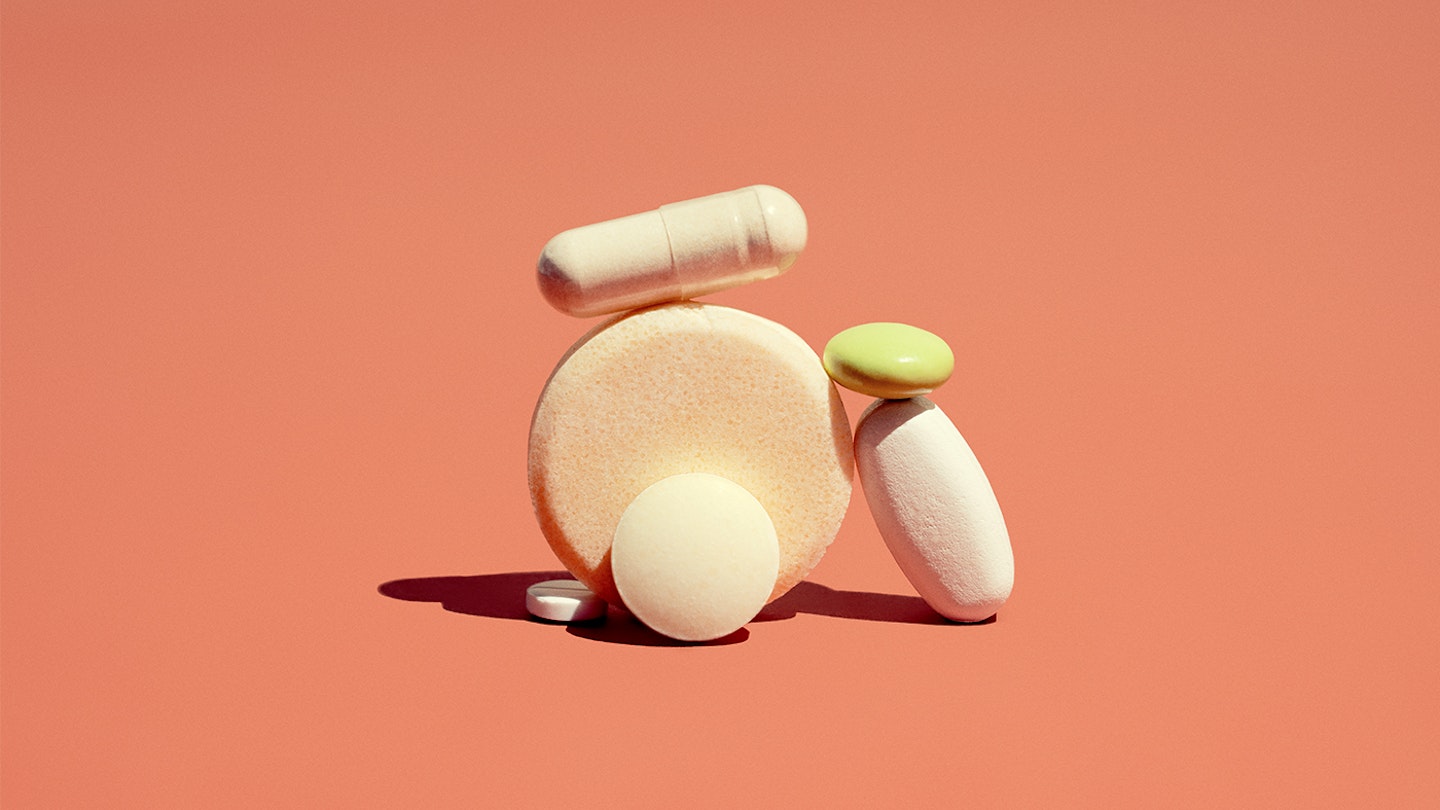Fertility journeys can be emotionally draining, often leaving you feeling powerless and like you have no control over your body. It's no wonder so many of us are choosing fertility supplements and vitamins before proceeding with additional treatment.
But do these fertility supplements really work, and are they worth our money? Or can we get all the goodness from fertility superfoods? We caught up with Sandy Christiansen, Embryologist and Fertility Coach at Béa Fertility, to get her expert opinion on fertility supplements and to find out which ones may help if you're trying to get pregnant.
Why should women take fertility supplements or vitamins?
We know that eating a nutritious and balanced diet is great for your health, and according to Sandy, there is research to suggest certain nutrients can have a positive impact on your fertility.
“In the same way, it impacts pretty much every area of our health, our diet can have an important role to play in supporting fertility. Taking certain supplements and vitamins can help to support this and may boost the chances of conception. There is some research to suggest that different nutrients can have a positive impact on ovulation, implantation, and egg or sperm quality, for example,” Sandy explains.
What are the best fertility supplements and vitamins for women?
Best Fertility Supplements Overall
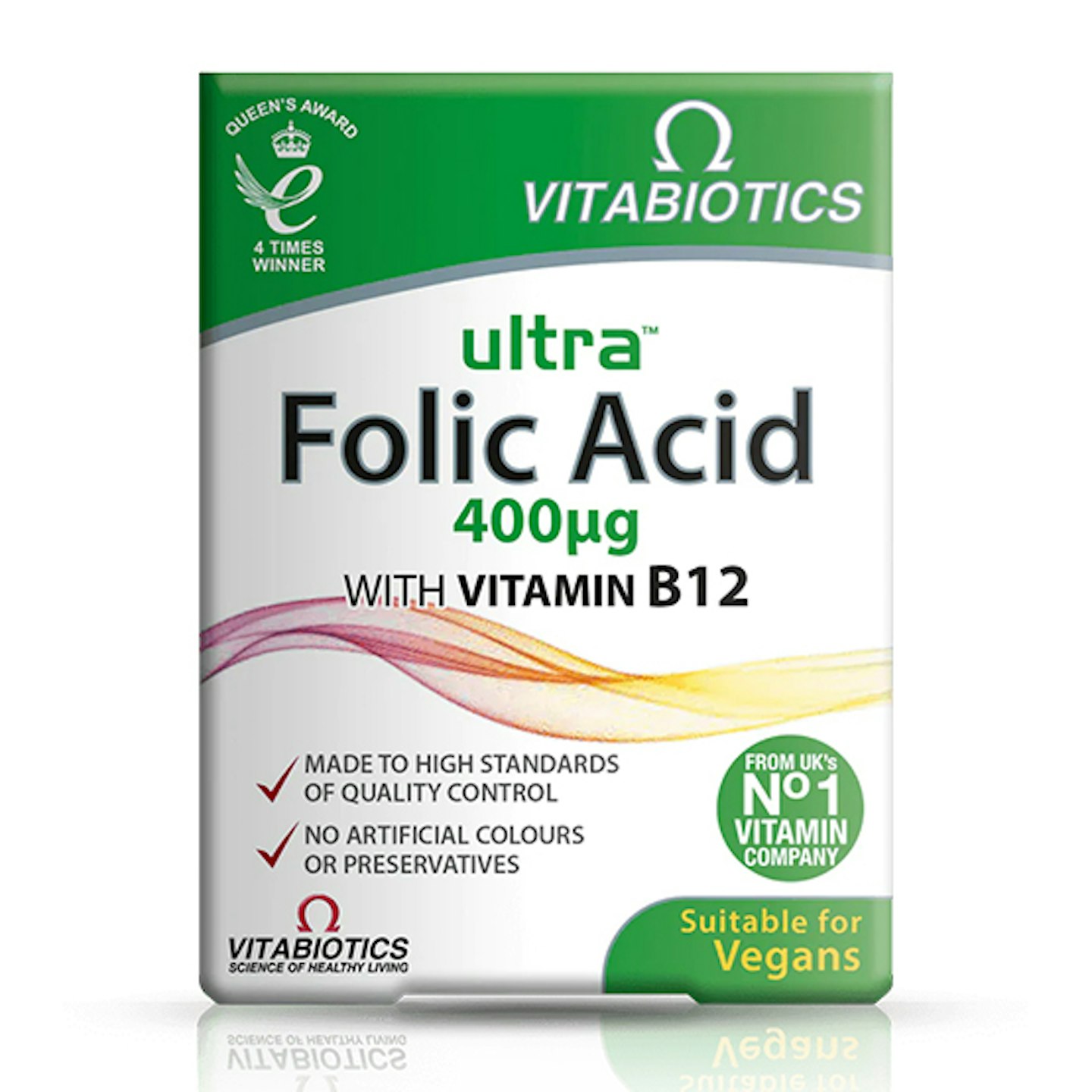 Vitabiotics
VitabioticsAs Sandy says, “Folic acid is an important supplement for female and male fertility. As well as preventing certain birth defects, it can help to support the reproductive organs, including the ovaries and encourage a healthy pregnancy."
These folic acid supplements contain 400µg Folic Acid, as recommended for pregnancy and also include Folate and Vitamin B12, which contribute to the normal function of the immune system. They're also suitable for vegans.
Review: "I have to have these on a daily basis, and I love how affordable these are. On top of how cheap these are, they do a deal buy two and get one free. I couldn't be happier."
One reviewer mentioned they're not compatible with some prescribed medication, so check with your GP if Folic Acid is right for you.
Pros
- Suitable for men and women
- Also formulated with Vitamin B12
- Helps combat tiredness and fatigue
Cons
- May not be compatible with some prescribed medication
Best high strength Vitamin D supplement
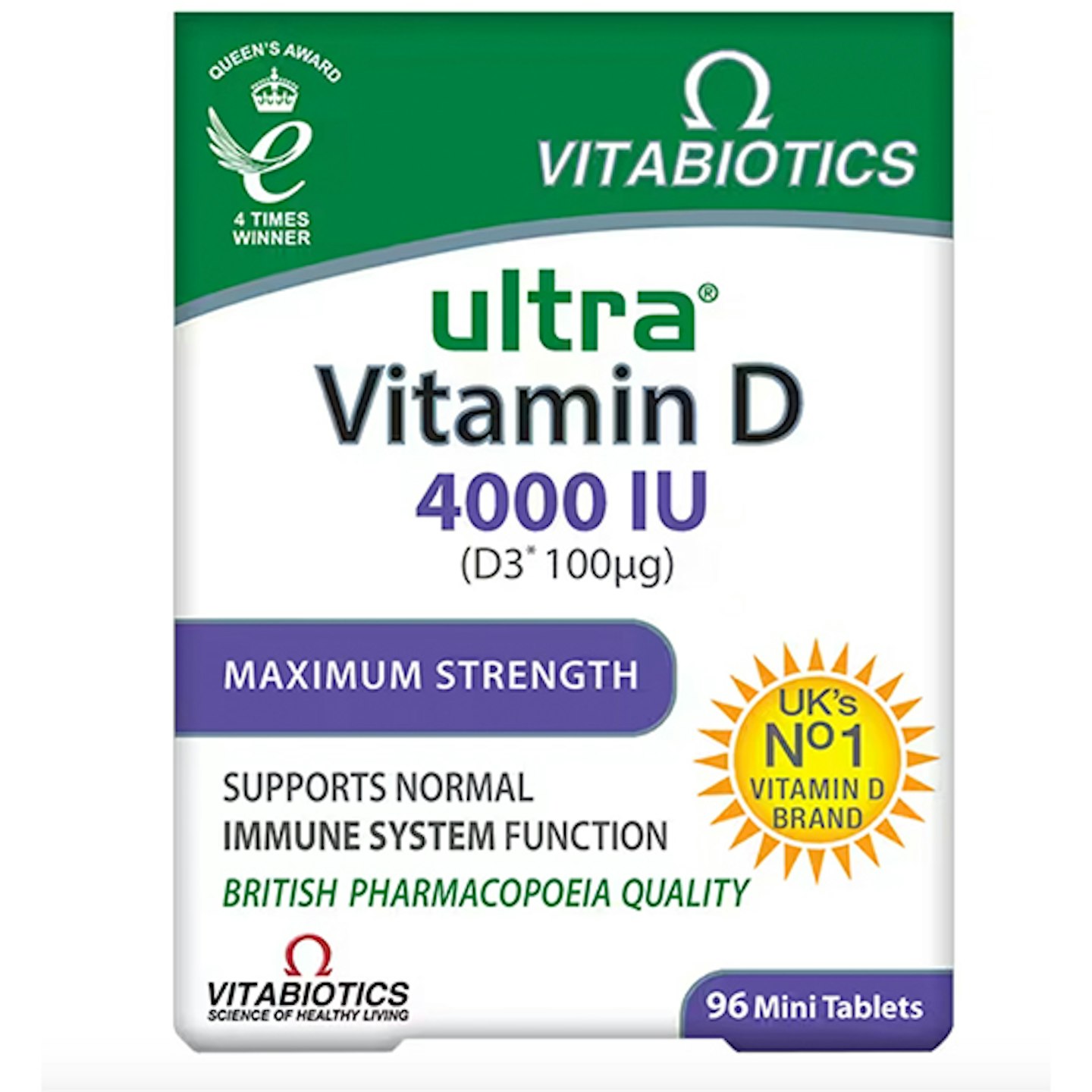 holland and barrett
holland and barrett“There is a fair amount of research to suggest that Vitamin D can have a positive impact on female fertility, and may help in particular with conditions such as PCOS and endometriosis" notes Sandy.
These supplements contain 100µg of vitamin D and are specially formulated for those who require the highest strength of Vitamin D, so it is recommended for use with the guidance of your GP or pharmacist. Ultra Vitamin D provides vitamin D3, which is the preferred form of vitamin D.
Vitamin D contributes to the maintenance of normal bones and teeth and helps support the normal function of the immune system.
Review: “I can see the difference! I was taking 1000IU in the summer time, and you know what, I was still lacking vitamin D according to my GP, but when I started taking 4000IU, I felt a huge difference in my mood.”
Pros
- Keeps bones healthy
- Boosts mood
- Supports the immune system
Cons
- Taking too much over a long period can cause a calcium build up
- Should only be taken after consultation with your GP
Best supplement for energy
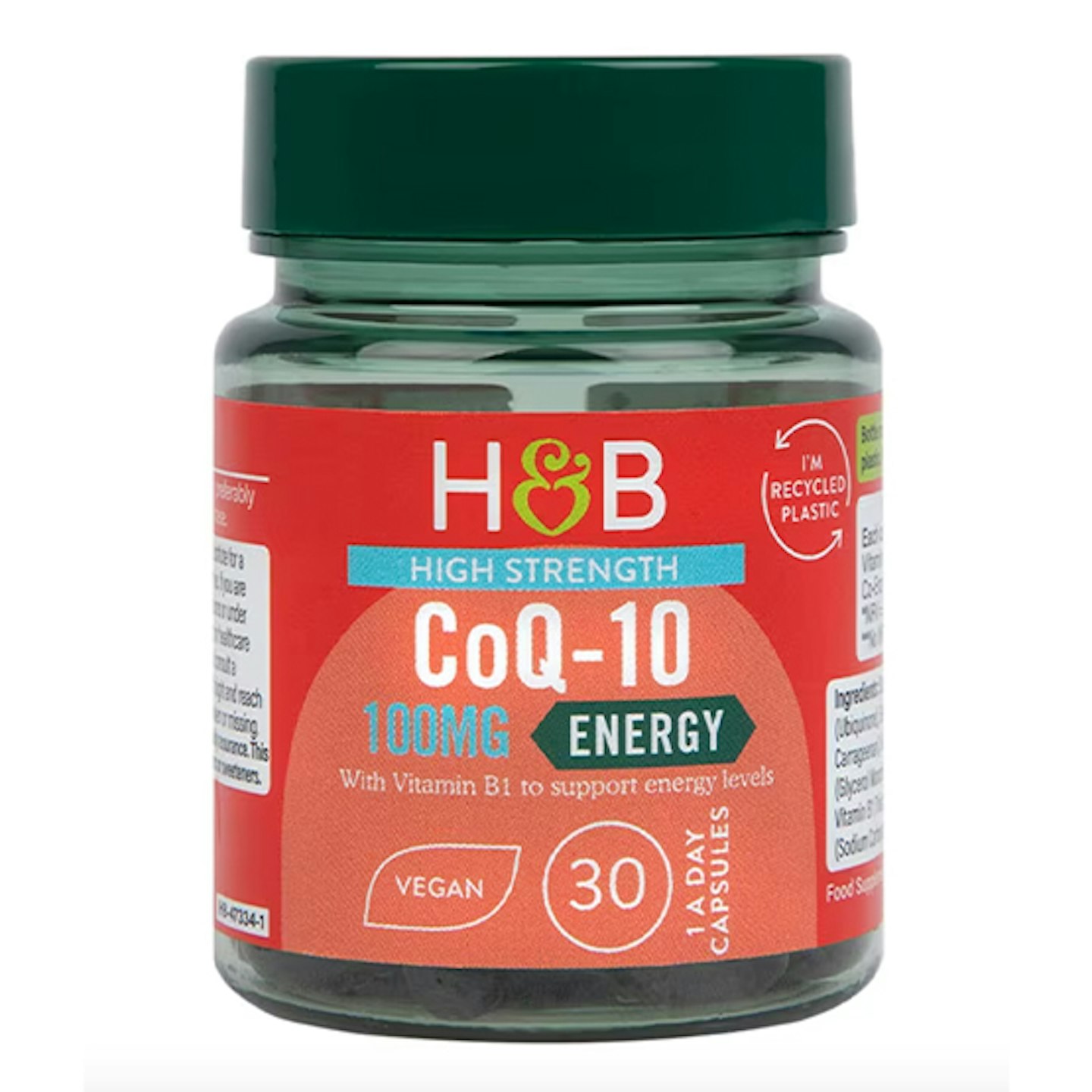 holland and barrett
holland and barrettwww.hollandandbarrett.com
“Coenzyme Q10 is an antioxidant and is thought to help protect egg quality by fighting against oxidative stress and free radicals," Sandy explains.
Vitamin B1 helps to support energy levels, while Co-Enzyme Q-10 helps with biochemical reactions in organs like the heart, liver, lungs, and kidneys, along with skeletal muscles.
Review: “I have ME/cfs and unfortunately a number of other health conditions that cause fatigue, so I wasn’t expecting much. I can’t really tell what these tablets do when I’m taking them, only that I notice a definite difference when I miss one or two (I’m usually bedridden with a horribly low mood when I forget to take one). They’re the only supplement I’ve tried that has done anything for my fatigue at all.”
Pros
- Good for a range of organs
- Supports energy levels
Cons
- Some customers found some capsules were missing from their bottles
Best Omega 3 supplements
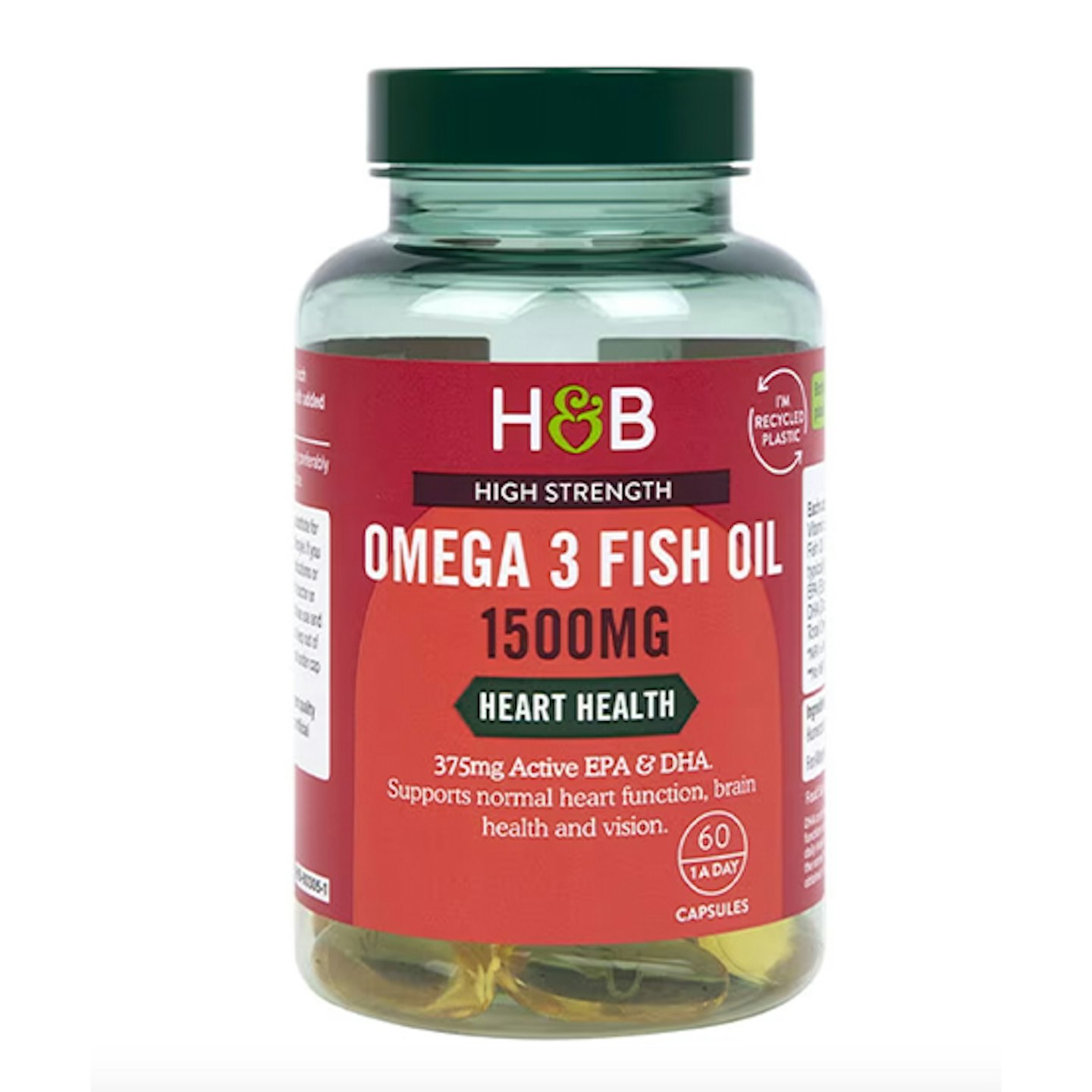 holland and barrett
holland and barrettwww.hollandandbarrett.com
"Omega 3 fatty acids are thought to also be a helpful supplement to support regular menstruation, healthy egg quality and balanced hormones.”
This supplement contains contaminant-free, pure fish oil to provide essential fatty acids, which can only be gained from food as they are not naturally produced by the body. They contains active EPA and DHA and contribute towards normal brain and heart function as well as supporting healthy vision.
Review: “I have been using these capsules for at least 3 years and that goes to say that I am pleased with the results. Once a day dosing it is convenient.”
Pros
- Supports heart and brain health
- Supports vision
Cons
- Some customers found they left an unpleasant after taste
Are there any fertility supplements men can take?
It's not just your fertility you'll need to consider, your partner's fertility matters too. While there are plenty of foods to boost his sperm count, it's also a good idea to have a chat with your partner to discuss the different supplements he could be taking to help boost your chances of conceiving.
“Just as with female health, vitamins and supplements can play an important role in supporting male fertility too," says Sandy.
She goes on to say, “Zinc is thought to have a positive effect on sperm quality and production, and so are Omega 3 fatty acids. Meanwhile, vitamins C and E and Coenzyme Q10 are all antioxidants, which can help to protect semen from the impact of oxidative stress and free radicals, potentially improving sperm quality and boosting fertility as a result.”
What are the best fertility supplements and vitamins for men?
Best male fertility supplements
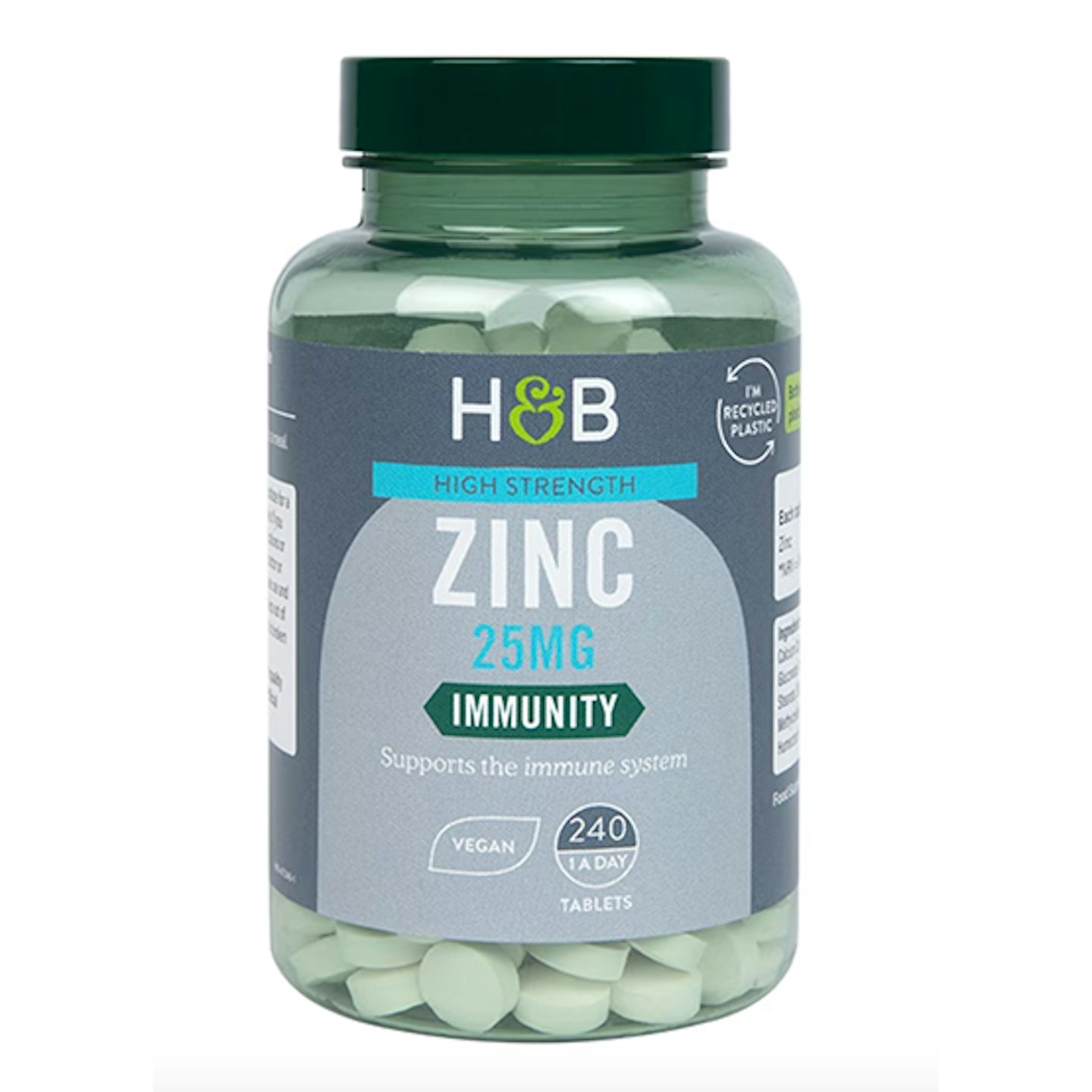 holland and barrett
holland and barrettwww.hollandandbarrett.com
Not only can zinc help sperm quality, but it's also beneficial for the immune system, too. If you're not getting enough in your diet, it can impact your health. These Maximum Strength Zinc Tablets aid in normal fertility and reproduction and help maintain normal testosterone levels in the blood. They're suitable for vegans and vegetarians.
Review: “I use various products from H&B and find them all beneficial we all need an extra boost to our immune system, and I find these help”
Pros
- Boosts your immune system
- Good for bone health
Cons
- Some customers found them difficult to swallow
Best Vitamin C supplement
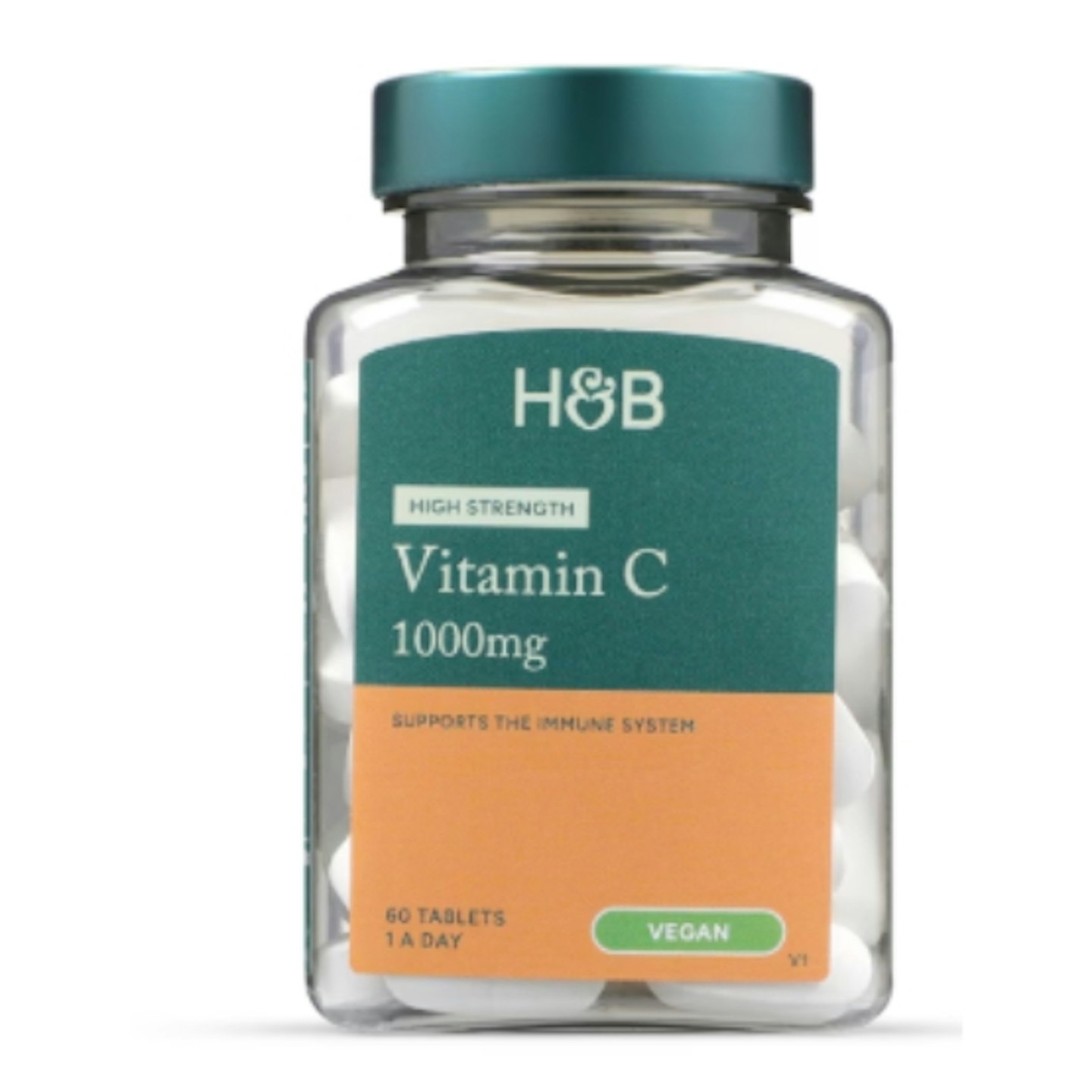 Holland and Barrett
Holland and Barrettwww.hollandandbarrett.com
Vitamin C is vitally important to our overall health, and its antioxidant properties can help protect semen. Vitamin C is also great for skin and collagen production. It helps our bodies turn the food and drink we consume into energy, which in turn can reduce excessive fatigue. It's essential for iron absorption and also plays an important part in collagen synthesis.
Review: “I take daily dose of Vitamin C and find this aids my overall immune system”
Pros
- Reduces tiredness and fatigue
- Boosts collagen production
Cons
- Tablets are large and may be difficult to swallow
Best supplement for exercise
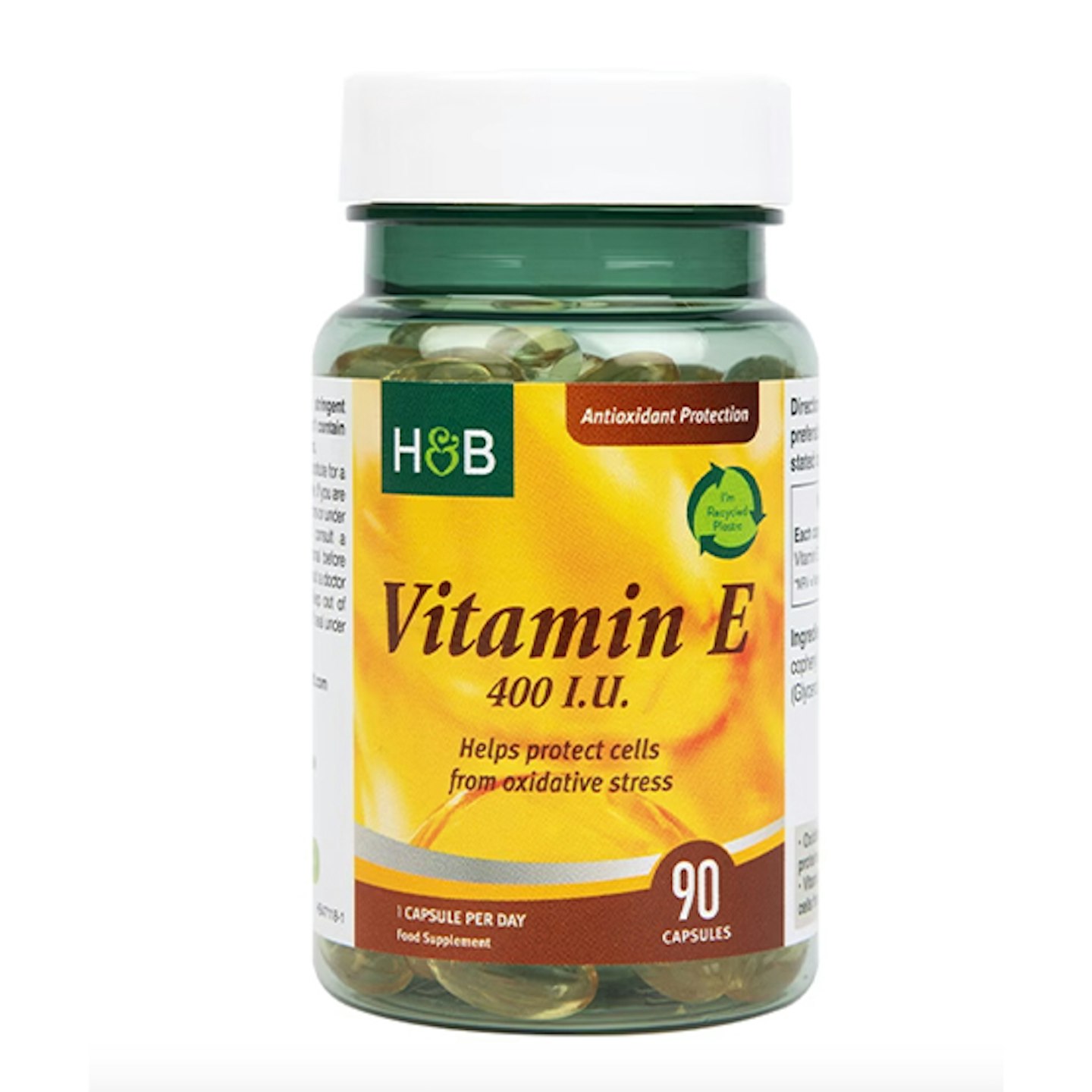 holland and barrett
holland and barrettwww.hollandandbarrett.com
Vitamin E a natural antioxidant and helps protect the cells from damage caused by free radicals. It's also important for athletes because free radicals are released after exercise, so taking Vitamin E can help the body's cells recover and is ideal if your partner enjoys regular, intense exercise.
Review: “Helped me a lot with boosting my energy and keeping me fighting viral infections.
Pros
- Good for exercise recovery
- Recommended for those with sun damage
Cons
- Some felt they were difficult to swallow due to hard shell
Best all-in-one fertility supplement for men
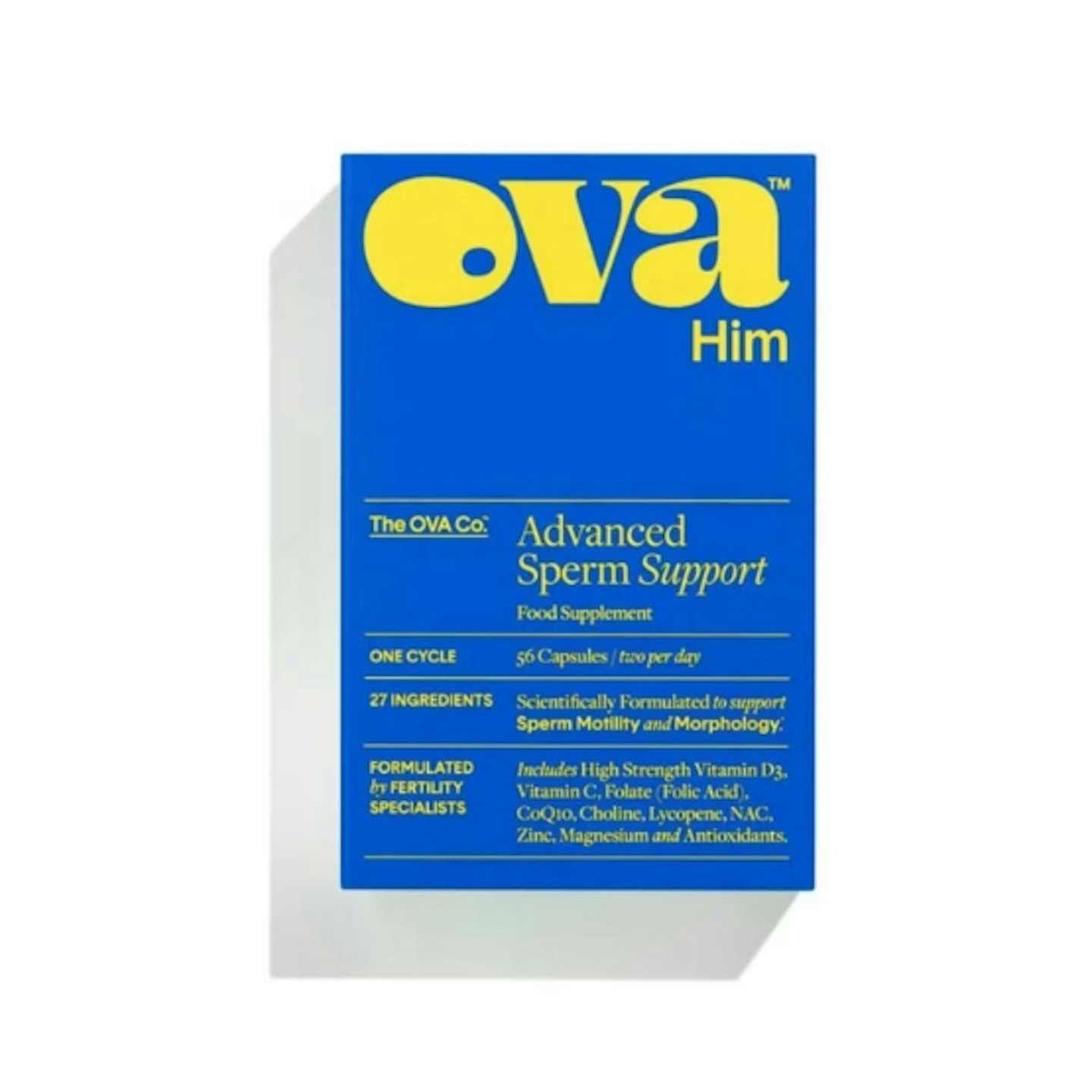 boots
bootswww.boots.com
A sperm-support supplement designed to be taken 3 months before conception. Packed with 27 nutrients, this high-strength formulation has been handpicked for its bioavailability and based on the latest clinical research. One daily dose covers your optimal nutritional intake.
Pros
- Comes with Vitamin B12, B6 and Zinc which contributes to the maintenance of normal testosterone
- Complete all-in-one conception support
Cons
- Need to take two a day
Do you need to check with a GP before taking fertility supplements?
“It’s always a good idea to speak to your GP or fertility advisor before you begin taking any new supplements. They will be able to give you tailored advice based on your unique situation and medical history, and support you to navigate finding the right supplements for you and help you to use them safely,” explains Sandy.
When is the best time to start taking fertility supplements?
“If you’re actively trying to conceive, the earlier you start taking fertility supplements, the sooner they are likely to have an impact on your overall health and fertility. Speak to your GP or a trusted health professional if you’re unsure whether or not to begin taking fertility supplements, or when. It’s good to know your options, even if you ultimately decide not to take any supplements during your fertility journey.”
Can other supplements interfere with fertility?
Sandy notes that “some supplements can interfere with thyroid hormones, which in turn can have an impact on ovulation and progesterone production, so if you have a known thyroid condition, it’s particularly important to discuss supplements with your GP."
She goes on to explain that “you should also be mindful of protein shakes and powders, as excessive intake can have a negative impact on testosterone levels and sperm production."
Will fertility supplements affect my periods?
“Most fertility supplements shouldn’t interfere with your menstrual cycle. If you’re concerned, or you notice any unusual changes in your period, it’s important to make an appointment with your GP to make sure there is nothing else going on that might be affecting your menstruation.”
What are some of the side effects of fertility supplements?
“For the most part, if you’re taking vitamins or supplements to support your fertility, they shouldn’t be causing any nasty side effects. However, certain supplements - especially those containing hormones - may cause symptoms in some people." As Sandy goes on to say, "These can include nausea, headaches, stomach cramps and breast tenderness. If you experience any side effects, it’s a good idea to check in with your GP to make sure there’s no alternative cause, and to discuss whether or not you need to stop taking the supplement.”
Fertility supplements you may want to try
Whether you prefer to just take the one tablet or you think you're getting all your fertility-boosting nutrients from your diet and just need an overall fertility supplement to give you a boost, there are many fertility supplements on the market you may want to try. Just know that they aren't cheap, which is why it may be more cost-effective to target specific vitamins and nutrients you might be lacking through individual vitamins or a more balanced diet.
Best fertility supplements for women
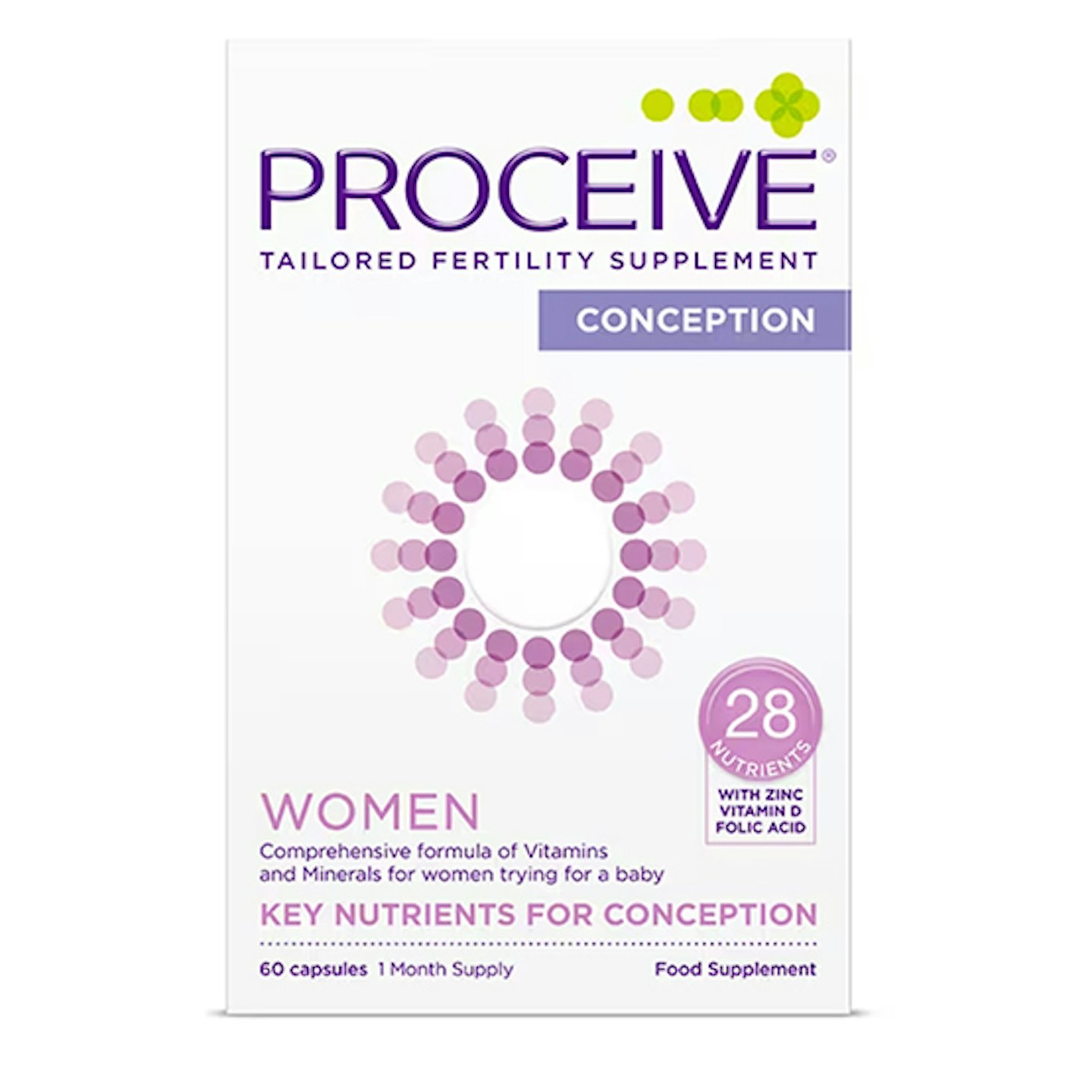 holland and barrett
holland and barrettThis is an advanced fertility specially designed for women trying for a baby and contains 28 key ingredients with an active blend of amino acids, vitamins, minerals and nutrients including Vitamin E, Vitamin C, Vitamin B1, Vitamin B5, Vitamin B2, Vitamin B3, Zinc Oxide, CoEnzyme Q1O, Vitamin B6, Vitamin D3, Vitamin B12, Folic acid, Vitamin K1 and more.
Review: “So before I started taking these, I had two children that I was lucky enough to conceive quite fast!! When we decided to have a third, we thought the same would happen again, but it didn’t. We were trying for about 10 months before I tried these. Coincidence or not, I got pregnant with my third child on the second month of using these. We have just decided to have our fourth and last child, and I thought I would take these from the start, and again, two months after starting them, I’ve just found out I’m pregnant again!! I definitely think these tablets had something to do with it! Obviously, they might not work for everyone, but they worked for me!”
Pros
- All-in-one supplement
- Only two tablets per day
Cons
- Don't work for everyone
Best supplement for pre-conception and pregnancy
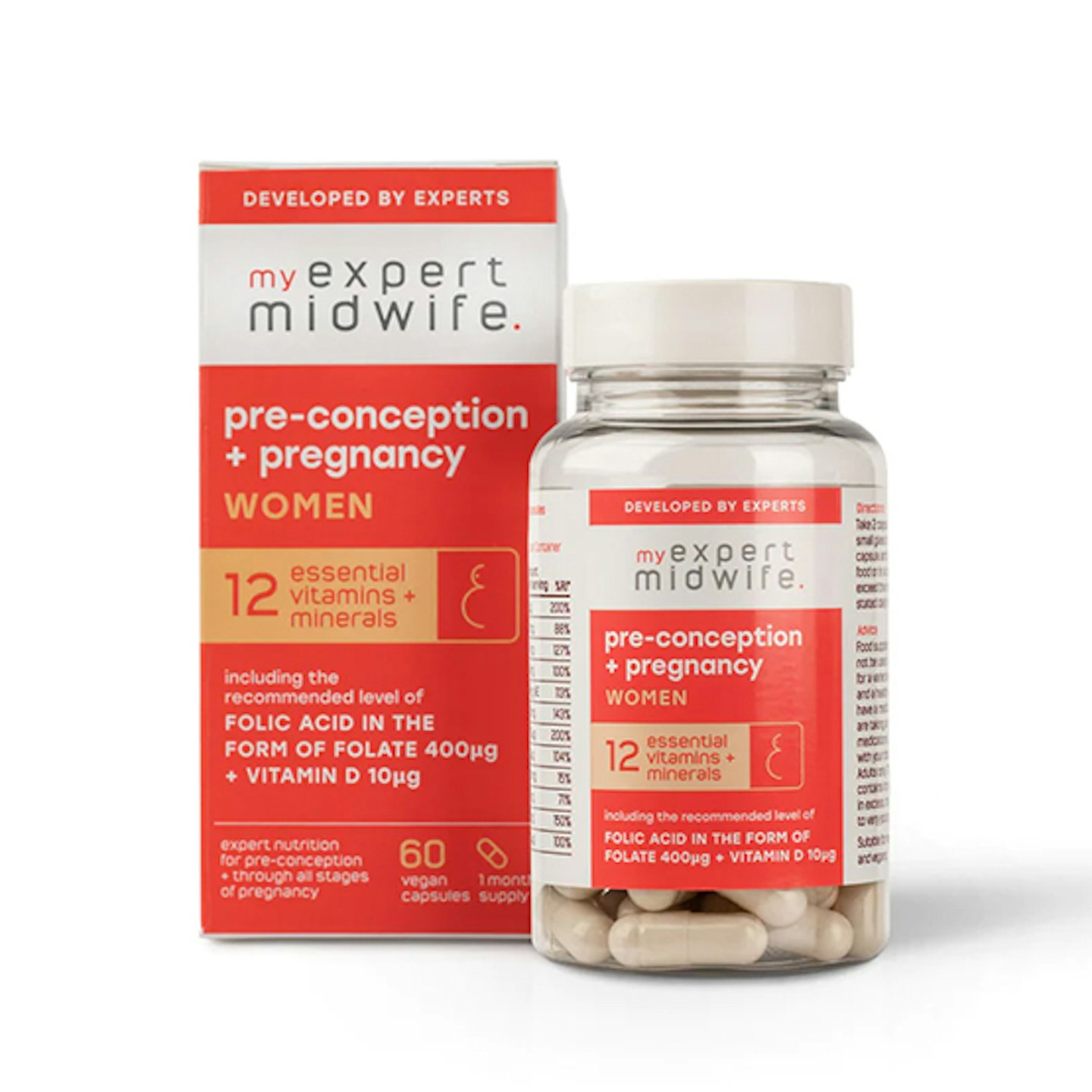 My expert midwife
My expert midwifeThis fertility and pregnancy supplement contains folate, Vitamin C, Zinc, Vitamin D, Vitamin B6 and Vitamin B12 to support the development of the unborn baby, contribute to the maintenance of normal bones, fertility and reproduction, help in the regulation of hormonal activity, metabolism and can help reduce fatigue.
Review: "I spoke to My Expert Midwife about a miscarriage I’d had and they were nothing but supportive to me and even sent me some supplements for myself and my partner, I’m so incredibly grateful and we’ve just finished our first months worth, onto the next month now, really praying this will be our lucky month! Can’t thank the team enough for their kindness, they really do care, it’s clear to see."
Pros
- Option to open capsule and sprinkle into food
- Vegan
Cons
- Again, didn't work for everyone
About the expert
Sandy Christiansen, MSc, is an Embryologist and award-winning fertility coach with over a decade of experience working in fertility clinics around the world. She is an HCPC registered Clinical Scientist, ESHRE certified Clinical Embryologist and highly experienced fertility coach.
Lorna White is the Senior Digital Writer for Mother&Baby. After running the Yours magazine website, specialising in content about caring for kids and grandchildren, Lorna brought her expertise to Mother&Baby in 2020. She has a keen interest in a range of topics from potty training and nutrition to baby names and early development, and has a wide range of experienced medical experts and professionals at her fingertips. In her spare time, she enjoys spending time with her two young sisters, dog walking and enjoying the outdoors with her family.
